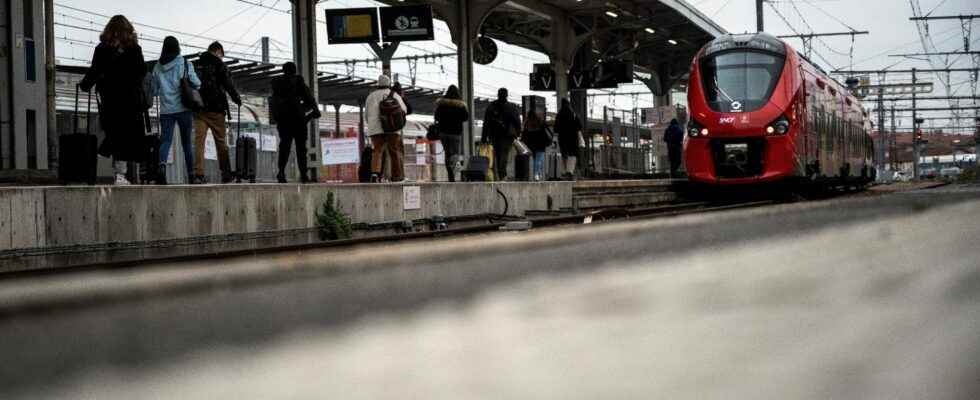“A galley Thursday”. These are the words used by the Minister of Transport, Clément Beaune. The strike against a decried pension reform promises to be very popular on Thursday, January 19, especially in education and transport. The SNCF provides for “very strongly disturbed” traffic with one TGV in three, or even one in five depending on the line, and barely one TER in ten on average. The Paris metro will also be reduced to the essentials, with three lines closed, ten others open “only at peak times” and a “risk of saturation” on the last three, according to the RATP.
Who says massive strikes in transport, says return of the old debate on the minimum service. In July 2008, Nicolas Sarkozy saw fit to be ironic: “From now on, when there is a strike, nobody notices it.” A year earlier, the former head of state had insisted that a law “on social dialogue and the continuity of public service in land transport” be passed. This law, wrongly called “minimum service law”, has in fact only established a “predictable service” in the event of a strike.
It obliges the strikers to declare themselves no later than 48 hours in advance. From these data, the company must develop “a transport plan” by reassigning the non-striking personnel as well as possible. The company must provide users with “precise and reliable” information on the service provided no later than 24 hours before the start of the disruption. Unlike the minimum service in hospitals, this law does not provide for the requisitioning of personnel, experienced by the unions as an attack on the right to strike, hence the impossibility of guaranteeing any minimum service in the event of a very high rate of strikers. .
The method of “sleeping strike notices”
The debate resurfaced a month ago, at the time of the SNCF controllers’ strike at Christmas. Last winter, the public company had difficulty in establishing dialogue with a collective of controllers at the origin of this social movement, which rejects any acquaintance with the unions. This group, however, had to rely on the latter to file notices.
Indeed, the agents relied on notices filed at the end of October for the holidays by unions – in this case the CGT-railway workers and Sud-Rail -, without these organizations ultimately deciding to call for an end to the work, thus making these notices available to anyone who wants to.
This trade union practice of “dormant strike notices” is beginning to upset the management of the SNCF. In principle, the strike must be preceded by five days’ notice given by a representative union, which mentions the start time and the duration of the work stoppage. But, very often, organizations “forget” to declare the end of the movement, thus giving them the possibility of reactivating the procedure quickly, even several years later. At FO, it was even decided not to bother with the dates, the union having filed in 2022 a notice running until 2045-2050, as revealed by L’Express.
“Ensuring the continuity of public services in all circumstances”
Faced with this “new situation, we need to have new ways of thinking, because we are facing something that did not exist in our country”, said government spokesman Olivier Véran on December 22. “It invites us to think about the framework to ensure in all circumstances the continuity of access to public services in our country”, he underlined.
Since then, the government has made no progress on this flammable social issue. “The President of the Republic mentioned the need for the future to take into account this new type of strike movement which escapes social dialogue”, was content to specify Olivier Véran at the end of last year. He announced that Emmanuel Macron had asked the Prime Minister, Elisabeth Borne, to “consider the establishment of a framework to ensure the continuity of public services in all circumstances”.
Joined by The echoes, Matignon specifies that he “asked the transport and energy firms to find solutions with the companies to better optimize the continuity of the public service”. But the request is “not specifically to legislate”, specifies the entourage of Elisabeth Borne.
At the end of 2019, the senators Les Républicains had tabled in the Senate a bill creating “the right to guaranteed public transport”. “We must establish a guaranteed minimum service”, assured then the president of the LR group in a meeting in the Sunday newspaper. At the time, he felt that the 2007 law “was a first step” and “progress, but that it “met its limits”. “There is nothing like a guaranteed minimum service.”
